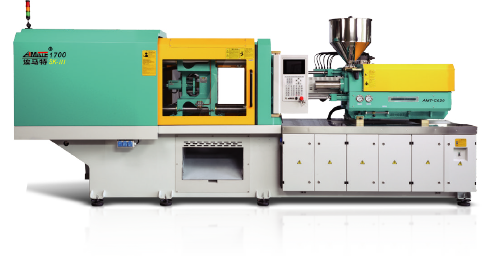
A PVC pipe injection molding machine is specialized equipment used to manufacture polyvinyl chloride (PVC) pipes through the injection molding process. This type of machine is designed to handle the unique properties and requirements of PVC material to produce pipes that are widely used in plumbing, electrical conduits, and various industrial applications. Here’s a detailed overview:
Components and Functionality
Barrel and Screw: The injection unit features a barrel and screw designed specifically for PVC to ensure proper melting and mixing.
Heater Bands: These are used to heat the barrel to the required temperature to melt the PVC resin.
Injection Nozzle: Delivers the molten PVC into the mold cavity.
Mold Clamping Mechanism: Holds the mold in place during the injection process. It must apply sufficient force to keep the mold closed and maintain the shape of the pipe.
Ejector System: Ejects the finished PVC pipe from the mold after it has cooled and solidified.
PLC (Programmable Logic Controller): Controls the entire operation, including temperature, pressure, injection speed, and timing.
User Interface: Allows operators to set parameters and monitor the process.
Process of PVC Pipe Injection Molding
PVC resin, along with necessary additives such as stabilizers and plasticizers, is fed into the hopper of the machine.
The screw rotates and moves the PVC material forward, where it is melted by the heater bands surrounding the barrel.
The molten PVC is injected into the mold cavity under high pressure through the nozzle.
The mold is cooled, typically by circulating water or other cooling methods, allowing the PVC to solidify into the desired pipe shape.
Once the PVC pipe has solidified, the mold opens, and the ejector system pushes the finished pipe out of the mold.
Advantages of PVC Pipe Injection Molding
Precision: Allows for the production of high-precision and complex shapes with consistent quality.
Efficiency: High production rates and reduced cycle times compared to other molding methods.
Durability: Produces strong and durable pipes suitable for various applications.
Plumbing: Used in residential and commercial plumbing systems.
Electrical Conduits: Protects electrical wiring in buildings.
Industrial Piping: Used for transporting chemicals, gases, and other industrial materials.
Key Considerations
Material Handling: PVC requires careful handling due to its sensitivity to heat and potential for thermal degradation.
Machine Specifications: Machines must be designed or adapted for PVC processing, with appropriate temperature controls and corrosion-resistant components.
Environmental and Safety Compliance: Ensuring the manufacturing process adheres to environmental regulations and safety standards.
A PVC pipe injection molding machine is an essential piece of equipment in the manufacturing of durable and reliable PVC pipes, contributing to various industries' infrastructure and functionality.

 We have served 1000+ customers
We have served 1000+ customers We can customize machines according to customer needs
We can customize machines according to customer needs The Best Work Team for Injection Molding Machines
The Best Work Team for Injection Molding Machines





